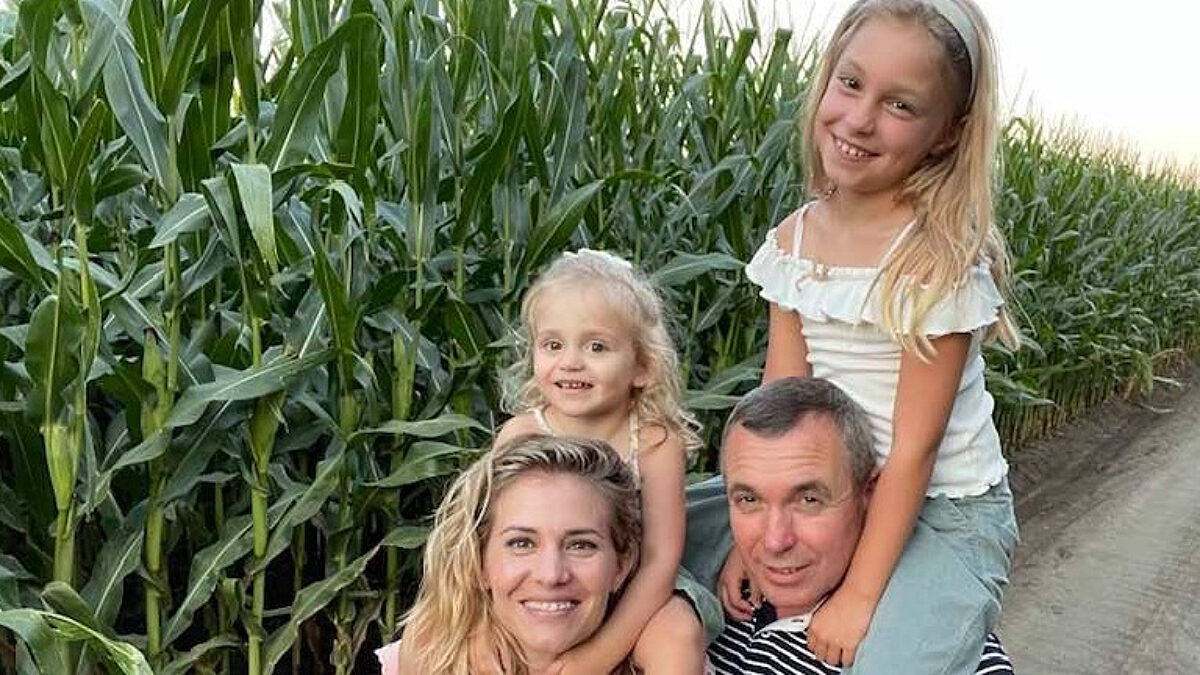From Oklahoma to Moldova: I’m Thankful for the Voice of Agriculture
TOPICS
StillFarmingGuest Author
Special Contributor to FB.org

Guest Author
Special Contributor to FB.org
By Kelsey Walters @KelseyWaltersS
As Americans, we all know the phrase “freedom is not free,” but having freedom requires civilian maintenance in addition to the sacrifices made by our soldiers. As farmers, we are farther away from the hub of government and must work even harder to maintain freedom, representation and political voice.
Being raised on a five-generation farm in Oklahoma, I am proud of our registered Hereford cattle, reclaimed prairie grass pastures, and my family’s deep heritage of civic engagement in our small community. Attending a rural public school, we would take class field trips to the Oklahoma State capital to meet our elected officials to get a feel for how our interests were represented in our government system. I always felt that I had access to my political system.
When I arrived in Eastern Europe for the first time as a U.S. Peace Corps volunteer, one of the many stark differences about life in the Republic of Moldova compared to life in Oklahoma, in addition to outdoor vs. indoor plumbing, was the weak culture of democratic participation and demand for representation.
Just as crucial as maintenance on farm equipment, it is crucial to maintain a farmer's voice in government.
As a Peace Corps volunteer, we had difficulty finding leaders who could muster the optimism to “solution seek.” The inherited mindset of the Soviet Union that “the government is responsible” was deeply embedded in the population.
Fast forward to the end of the Peace Corps, and I had met Yuri. In a whirlwind of visa applications, business registrations, and marriage licenses, we were married and the proud owners of a decrepit and indebted Soviet Collective farm in Moldova on the border with Ukraine. Coming from a family that kept a grease gun in every vehicle for preventative maintenance, I was shocked to see the poor state of equipment and facilities that had been vandalized for scrap metal without a forethought to maintenance.
The amount of investment needed in equipment, operations, and most of all personal initiative was at times overwhelming.
In 2022 many more farmers in Moldova are carrying grease guns and feel primarily responsible for their operation, but they are still quiet when it comes to maintaining and strengthening their voice in the government.
Because of their reluctance to put their needs on paper, and to advocate together with other farmers, there is very little analysis and public outreach, which means hardly any public officials are reminded that farmers are foundational to the Moldovan economy. Without farming groups effectively advocating for the important regulatory reforms and tax incentives needed, Moldova’s agriculture sector is less competitive than neighboring Romania and Ukraine.
After the Russian invasion of Ukraine, the Moldovan government imposed widely damaging regulations that banned Moldovan farmers from exporting wheat. Without a voice for grain farmers, the government had no opposition, made no attempt to consult with farmers, and did not provide any justification for their decision.
As an American citizen, it is difficult to accept how the crops grown on Moldovan family farms are being treated as “state property” with little respect for their private investments and upcoming loan payments.
Coming back to Oklahoma with my daughters in March, I was blessed to witness the gentle but genuine strength of the American Farm Bureau as it advocates and fights for America’s farm families. I have been overwhelmed by the outpouring of support for Ukrainian farmers and how many more people can locate Moldova on a map than ever before. After experiencing different approaches to government, I am compelled to share how crucial it is for farmers to have a strong voice and diligent representation in government.
Kelsey Walters is an agriculture and spatial data analyst from Oklahoma and a farmer in Moldova. Kelsey and her husband Yuri operate 6,000 acres of cropland in Moldova along the Ukraine border. They produce wheat, corn, barley and sunflower seed and have 35 salaried staff on the farm. Follow Kelsey on Facebook or Twitter for more!
Trending Topics
VIEW ALL